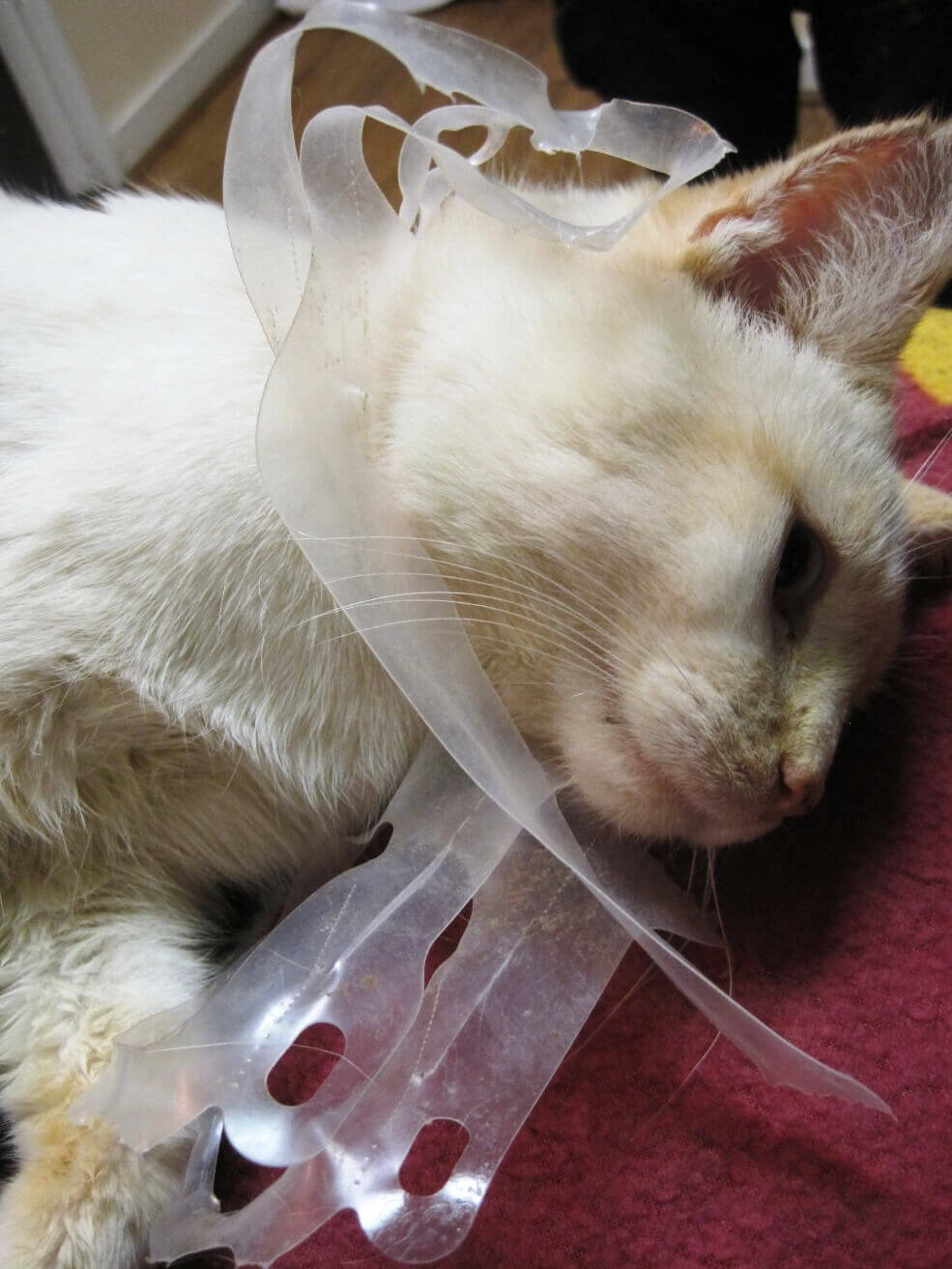Feral Cat Gets Head Stuck in Plastic Six-Pack Ring
Feral cats have enough to contend with—including speeding cars, other free-roaming animals, parasites, deadly diseases, extreme weather, cruel people, and more—without having to deal with the hazards posed by our litter. But a feral cat who was recently discovered by a PETA fieldworker in rural Virginia shows just how dangerous discarded plastic and other trash can be:

This cat’s plight should serve as a reminder not only never to allow our animal companions outside unattended but also to be aware that our trash can pose a threat to animals, both on land and in the water, long after it leaves our hands.
First and foremost, never, ever litter. Whales, turtles, and seabirds often mistake trash for food, and if eaten, it can choke them or cause fatal stomach or bowel obstructions. Hungry animals desperate for even just a few crumbs often get their heads stuck in discarded jars, cups, cans, bottles, and bags. This is why it’s vital always to rinse out containers and crush metal cans. Cut along one side of cup-like containers, and cut apart all sections of plastic six-pack rings, including the inner diamonds. Securely cover garbage cans and recycle bins so that animals can’t get into them and become trapped inside. And don’t forget to keep an eye out for other people’s trash, too. I always take an extra bag with me when I walk my dog so that I can pick up garbage along the way.
When shopping, choose paper bags or take your own reusable bags whenever possible. Wildlife filmmaker Rebecca Hosking persuaded her hometown of Modbury, England, to become the first in the U.K. to ban plastic bags. You can read more about her battle against the “plastic plague” as well as other inspirational stories in PETA President Ingrid Newkirk‘s book One Can Make a Difference.
As an Amazon Associate, PETA earns from qualifying purchases. If you buy something after clicking the Amazon links on this page, a percentage of the qualifying purchase will be donated to PETA and help us protect more animals from exploitation.

